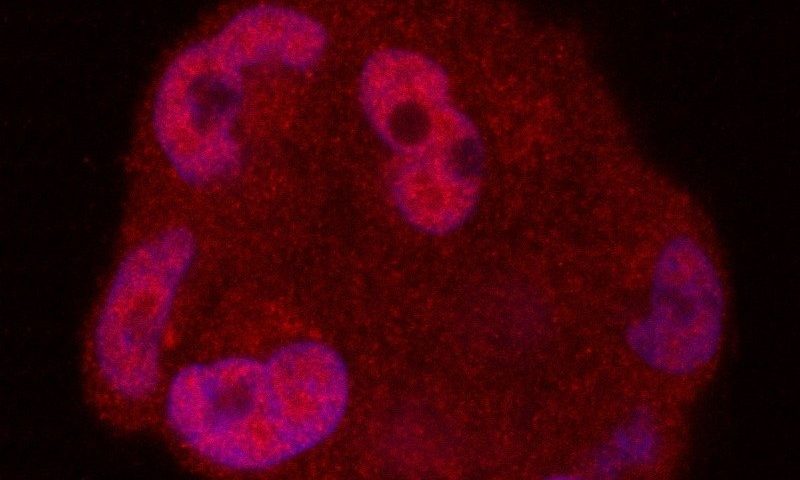The go-to strategy for treating prostate cancer is to block the hormones that drive tumor growth with drugs. It works, but many patients ultimately stop responding. Researchers at Washington University School of Medicine in St. Louis are proposing an alternative strategy—one that exploits an RNA molecule with the power to tamp down prostate tumors.
The researchers discovered a long noncoding RNA that regulates the androgen receptor. Suppressing the androgen receptor dialed up expression of the RNA in mouse models of prostate cancer, causing tumors to shrink, they reported in the journal Cancer Research.
A drug that restores the RNA molecule was licensed for development to biotech startup TechnoGenesys.
The team discovered the long noncoding RNA when they were studying the part of DNA that produces the androgen receptor. They observed that the androgen receptor can shut off the RNA molecule, which they dubbed NXTAR (next to androgen receptor), by binding to it.
“This means that in all the prostate cancer samples that we study, we rarely find NXTAR, because it is suppressed by the heavy presence of the androgen receptor in these types of tumors,” explained senior author Nupam Mahajan, Ph.D., professor of surgery at Washington University and co-founder of TechnoGenesys, in a statement.
When Mahajan and his colleagues used a drug they had originally developed to shut off expression of the androgen receptor in prostate tumors, they found that NXTAR started to appear. In mice implanted with human prostate tumor samples, dialing up NXTAR caused the cancer to shrink, they reported.
Suppressing tumors via NXTAR is one of several investigational approaches being explored in treatment-resistant prostate cancer. In the spring, a Cleveland Clinic team published research showing that inhibiting the protein H6PD in prostate tumors restored their responses to standard treatments.
And researchers at Cedars-Sinai demonstrated that inhibiting the protein EZH2—the target of Epizyme’s lymphoma drug Tazverik—reversed resistance to immuno-oncology treatments in prostate cancer models. Two trials of the drug in prostate cancer are now recruiting participants, according to ClinicalTrials.gov.
Mahajan and his team at Washington University hope to develop the NXTAR-enhancing drug, now called (R)-9b, and NXTAR as therapies for treatment-resistant prostate cancer. The university has filed a patent application on NXTAR.
Meanwhile, TechnoGenesys licensed (R)-9b from Moffitt Cancer Center, where Mahajan previously worked, and is preparing the drug for a phase 1 trial in castration-resistant prostate cancer.

